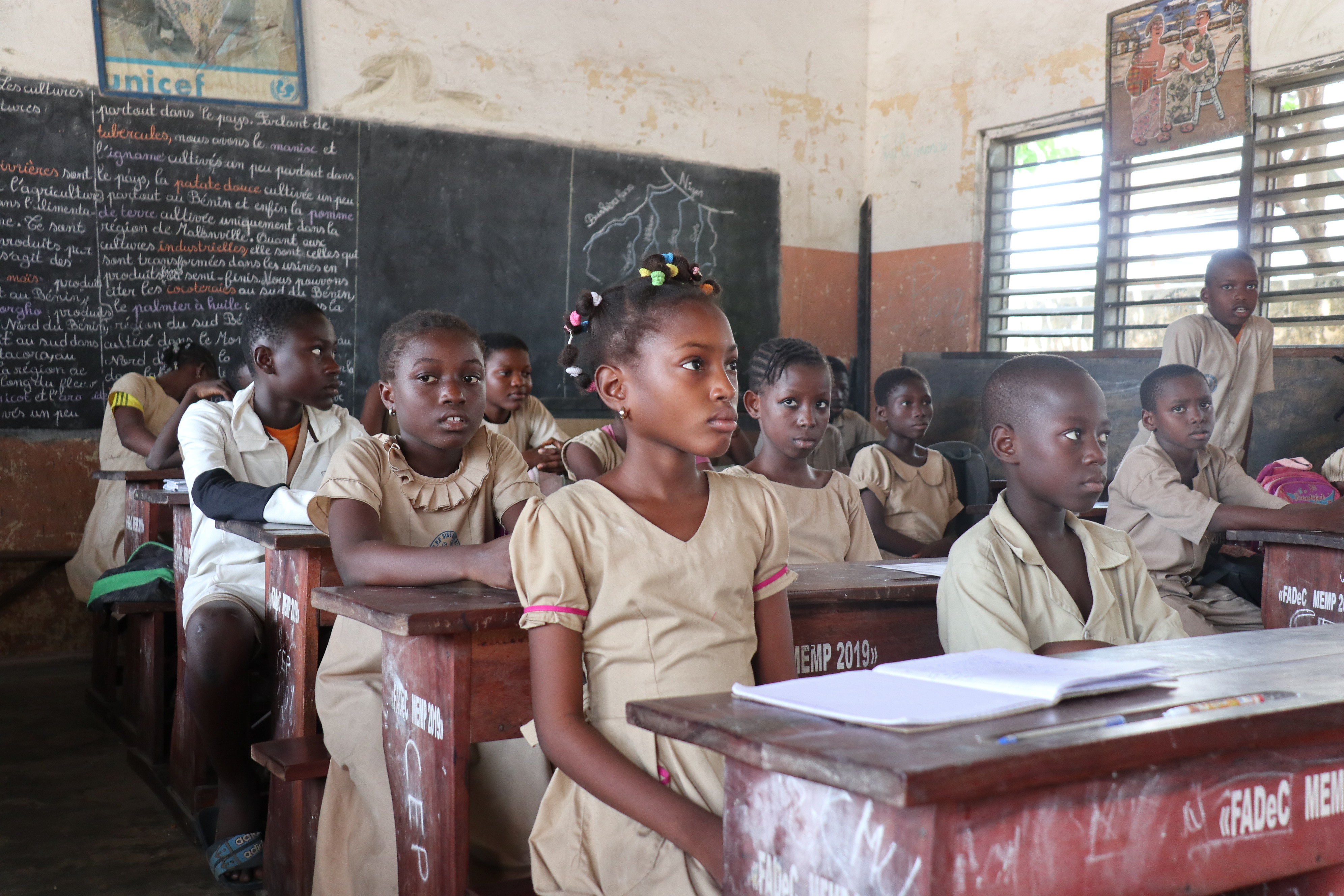Photo credit: Aide et Action
After more than two months of closure of schools, universities and training centres due to the COVID-19 pandemic, some African governments have announced the resumption of educational activities. However, the contagion curve is still rising in most countries on the continent. Is this a good initiative on the part of governments or a reckless risk to the health of the education system? Here is the analysis of Charlemagne BIO, Head of Programmes at Aide et Action.
What do you think of the decision to resume educational activities by some African countries while the contagion curve of COVID-19 is still rising?
I think it is very risky to resume educational activities under the traditional school conditions. Personally, I would not encourage the opening of classes in a context where the flow of the virus is not under control and the number of new contagions is constantly increasing. Even though most governments provide for the implementation of barrier measures in schools, it is difficult to enforce them on students for two main reasons. The first is the carelessness of the pupils due to their age (the term is not used in a pejorative sense), which does not guarantee strict compliance with the rules, even if teachers are asked to monitor them strictly. The second is the lack of control over the children's actual route from home to school and vice versa. While some privileged people are transported by their parents, the majority of learners travel unaccompanied.
What should be the prerequisites for reopening schools?
The only valid condition would be the total control of the flow of propagation, the main indicators of which should be the significant decrease. It is therefore necessary to strengthen the sanitary measures that allow the spread to be limited. At present, they do not seem to be sufficient since the situation is not improving. Countries that have lifted restrictive measures have seen the number of new infections double.
Now that the decision has been taken, what accompanying measures are needed?
It has been taken, but governments should be dissuaded from implementing it. If it is a non-negotiable decision, then we need to think of another strategy that allows academic activities to continue without necessarily opening the doors of schools and training centres. It is necessary to continue academic activities but it seems to me imperative to preserve the lives of learners. In my country, we say that "when the tom-tom changes rhythm, the dancers change their steps". COVID-19, in its radicalism, leads us to think outside the box and to rethink education differently.
As an Association for Development through Education, what role can Aide et Action play?
I think Aide et Action can act at three levels. 1 - Strengthen community awareness on hygiene and health as well as on the need to observe barrier measures; 2 - Accompany the States in providing preventive equipment such as hand washing devices, masks, gel, soaps, etc.; 3 - Propose the continuation of academic activities within the hostels thanks to an adapted support. The system of school remediation in the style of "hot homes" could be tried out here. All the teaching staff, as well as volunteers and communities should mobilise to develop such an alternative in the domestic offer of education.






